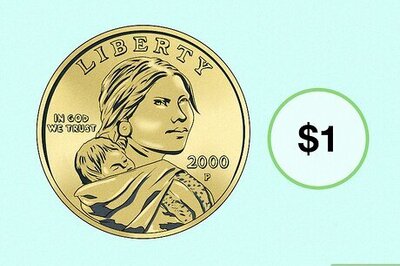
views
London: Whoever said 'opposites attract' might have to eat his own words, for a survey from a match-making website has claimed that initial spark of attraction soon fades and does not make for a long and happy married life.
A survey carried out by The Oxford Internet Institute, looked at the habits of 1,000 couples to find the secret of a happy relationship.
The poll was conducted for online matchmaking service eHarmony, which was launched in the UK this week, and boasts off 43,000 marriages per year in the US.
Founded by professional psychologist Dr Neil Clark Warren, EHarmony puts potential members through grilling session of questions before thay make their profile on the site.
People who want to sign up for the site, complete a comprehensive questionnaire of more than 200 questions, which takes about an hour to complete.
"At the time that we launched in 2000, people were really sceptical that you could bring technology or scientific research to something that had always been attributed in these magical terms to some unknowable quality about why two people connect," eHarmony's Chief Executive Officer, Greg Waldorf was quoted by a news channel as saying.
The company matches people on the basis of results from surveys of both couples as well as individuals in each country.
"What we've shown in our North American market is that we can bring a scientific approach to something that's still a deeply personal and highly emotional process," he said.
However, analysis of the data gathered by eHarmony shows that couples value very different things across cultures.
The site identifies the major differences in personality types among individuals from the survey, and highlights the issues that are most important to couples that describe themselves as happy.
Then, the researchers change their matching model with those personality types and issues weighed differently until the model can successfully predict that the happy couples are a good match.
Waldorf said that the compatibility results that ultimately come from the survey results is totally distinct from similarity.
Also, he said that couples who are very similar or different are not necessarily compatible.
"We find that 'opposites attract' is not a great long-term kind of compatibility, even though it certainly does drive a lot of initial attraction," he said.


















Comments
0 comment